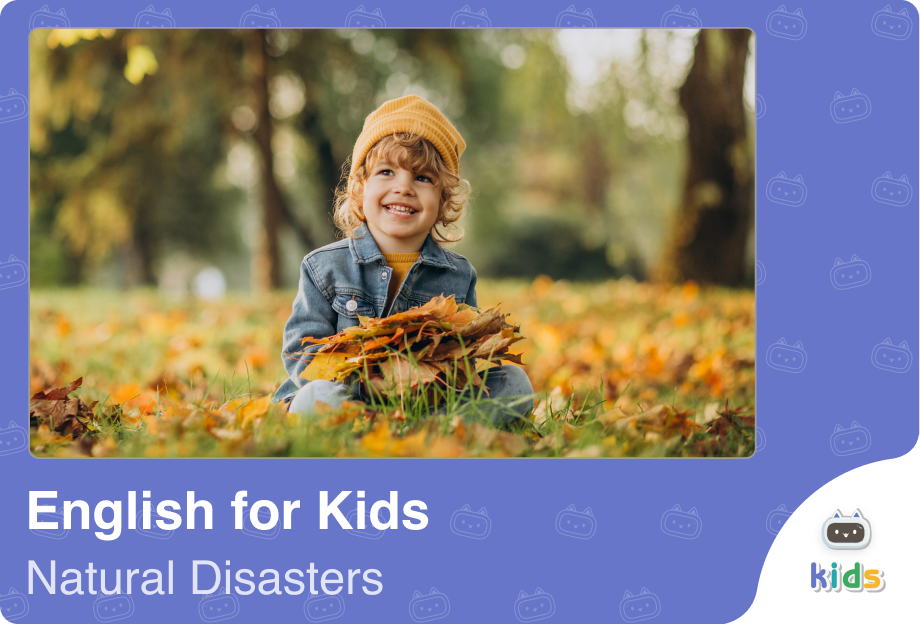In everyday English, we often use words that are actually made up of two separate words combined into one. These are referred to as compound nouns. The process of creating new words with a specific meaning involves joining two words, like ‘toothbrush’ or ‘sunflower’. Compound nouns are commonly used in language to provide clearer and more efficient descriptions. In this blog post, we’ll take a closer look at what compound nouns are, how they’re formed, and how we use them in everyday conversation—with plenty of simple examples along the way.
Learn English with EnglishCentral
Building your vocabulary is key to mastering a language, and learning new and generational words along with common words can make a big difference in how fluently and expressively you speak. EnglishCentral gives you the perfect tools and environment to expand your vocabulary, practice new words, and use them with confidence.
With 25-minute one-on-one lessons for all ages and levels, EnglishCentral offers personalized and effective learning. These online live sessions are led by expert English teachers who guide you step by step, helping you improve at your own pace. You can also join 40-minute group lessons, where you’ll take part in fun, interactive conversations with your teacher and classmates.
However, EnglishCentral is more than just lessons! You’ll have access to thousands of interactive videos tailored to different interests. With our Watch, Learn, Speak, and Discuss steps, you can reinforce vocabulary and plan private lessons based on your needs. Quizzes, word exercises, and our AI-powered teacher MiMi make practicing English even easier. MiMi is always available to help you navigate different scenarios, from business meetings to ordering food, so you’re prepared for real-life conversations. After each lesson, MiMi provides personalized reports, tracking your progress and highlighting areas for improvement. This instant feedback helps you stay focused on your goals and gain the confidence to use English in everyday life.
What is a Compound Noun?
A compound noun is a word composed of two or more words that combine to form one idea or object. The combination of these words, whether they are nouns, adjectives, verbs, or prepositions, can create a new meaning. For example, “notebook” (note + book) refers to a book used for writing notes. Compound nouns can be written in three different ways: as one word (toothpaste), with a hyphen (mother-in-law), or as separate words (coffee table). Their function as a single noun in a sentence remains constant regardless of their form.
How To Form Compound Nouns
| Compound Elements | Examples |
|---|---|
| Noun + Noun | Bedroom Fish tank Toothpaste Sunflower Football Bookshelf Laptop |
| Noun + Adjective | Spoonful Childish Heartbroken Homesick Starry-eyed Duty-free Skin-deep |
| Noun + Preposition | Hanger-on Passer-by Mother-to-be Runner-up Lookout-for Comeback Break-in |
| Noun + Prepositional Phrase | Ten-year-old Father-in-law Brother-in-law Sister-in-law Man-of-war Jack-of-all-trades Editor-in-chief |
| Noun + Verb | Haircut Photo shoot Train-spotting Rainfall Lip-sync Babysit Brainstorm Housekeep |
| Adjective + Noun | Bluebird Greenhouse Blackboard Hotdog Whitewash Sweetheart |
| Adjective + Verb | Public speaking Dry-cleaning High-pitched Short-lived Loud-speaking Fast-acting Easy-going |
| Adjective + Adjective | Turquoise blue Golden yellow Bitter-sweet Red-hot Icy-cold Bright-white Pale-blue |
| Verb + Noun | Chopstick Washing Machine Pickpocket Driveway Breakwater Skateboard Sleepwalk |
| Verb + Preposition | Touchdown Check-in Take-off Log-in Drop-out Back-up Sign-up |
| Preposition + Verb | Upvote Outrun Overcome Underestimate Upgrade Input |
| Preposition + Noun | Underworld Afterlife Overcoat Infield Outskirts Uplift Offshore |
List of Compound Nouns in English
Here are some common compound nouns in English that you might come across in everyday situations.
| Airport | Underpass |
| Babysitter | Vice-president |
| Check-in | Washing machine |
| Dog house | X-ray |
| Yard sale | |
| Firefighter | Zipline |
| Garage sale | Birthplace |
| Haircut | Bookstore |
| Ice cream | Coffee table |
| Jack-in-the-box | Handbag |
| Kitchenware | Login |
| Living room | Roller-skate |
| Mother-in-law | Teaspoon |
| Notebook | Zookeeper |
| Online | Self-esteem |
| Parking lot | Traffic light |
| Quick-wit | Editor-in-chief |
| Raincoat | Mailbox |
| Sunflower | Homepage |
| Toothpaste | Handshake |
Frequently Asked Questions About Compound Nouns
What are the types of compound nouns?
Compound nouns are categorized into three main types based on their written form: closed, open, and hyphenated. Closed compound nouns are written as one word, such as “sunflower” or “notebook.” Open compound nouns consist of separate words, like “post office” or “high school.” Hyphenated compound nouns use a hyphen to connect the words, as in “mother-in-law” or “check-in.”
Are compound nouns singular or plural?
The plurality of a compound noun typically depends on its main or “head” noun. For most compounds, the plural is formed by adding “s” or “es” to the end, such as “bookshelves” or “bus stops.” However, in some cases, the first word takes the plural if it’s the primary noun, as in “attorneys general” or “passers-by.” Irregular plurals follow the base noun’s rules, like “teeth marks” from “tooth.”
Are compound nouns always nouns?
Compound nouns are typically nouns, but they can also function as compound adjectives or compound verbs. For example, hardworking (an adjective) and breakdown (a verb) are both compound forms. This shows that compound words are not limited to nouns and can appear in different grammatical categories in the language.
What’s the difference between compound nouns and compound adjectives?
Compound nouns and compound adjectives serve distinct grammatical purposes. A compound noun names a single entity and functions as a noun, such as “raincoat” or “coffee table.” In contrast, a compound adjective describes a noun and often appears before it, typically hyphenated, like “long-term plan” or “high-quality product.” The key difference lies in their role: compound nouns identify, while compound adjectives modify.
Would you like to put what you have learned into practice? You can access everything you need to learn English on a single platform! With 25-minute one-on-one live English lessons, 40-minute group lessons, more than 30,000 interactive videos, vocabulary learning tools, AI-supported tutor MiMi, quizzes, and interactive activities, EnglishCentral offers its users a personalized and quality education plan at an affordable price. How about registering for EnglishCentral now and starting to learn English?











